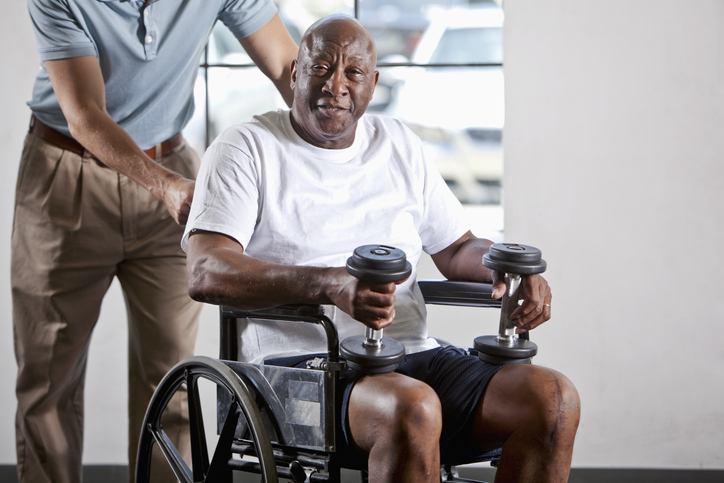
Lessons for Aging Well Did you ever encounter a person so motivating that it thoroughly transformed your viewpoint on life? It may cause you to pause and wonder just what it is about that person that provides them with the drive and energy to stand out from everyone else. At the Robert N. Butler Columbia Aging Center at Columbia University, researchers set out to examine this further with their “Exceeding Expectations” venture. They followed 20 older New Yorkers from various backgrounds and cultures for a two-year time period. Here is what they discovered about the resiliency of these extraordinary individuals, and what their secrets were to aging well. They don’t let their hurdles define them. One example is Jacquie Murdock, an 87-year-old previous professional dancer and current fashionista – which is how others recognize her – who also just happens to be sight-impaired and a cancer survivor. Dorian Block, director of the project, points out, “Some people live with health and other challenges as…

Understanding Pain Management in the Elderly with Dementia You see a senior loved one with dementia rocking back and forth, refusing food, and repeating the same words over and over again. While these could be typical dementia-driven behaviors, they could also indicate that the senior is experiencing pain. The communication disconnect that often happens in a person with dementia may make it difficult or impossible for an older adult to describe what’s hurting. Or it may be that the senior has lost the ability to recognize or remember the feeling of pain. Sometimes, the fear of having to face a hospitalization, to take additional medications, or to be put in a nursing home will prevent an older adult from sharing the pain being experienced. It could even be simply a matter of pride for a senior who is still in a position to effectively communicate, but believes he or she should deal with the pain sensation independently. Understanding pain management in the elderly who have dementia is important. It’s critical to learn the signs to watch for…

What We’re Now Learning About Senior Fitness and Strength Post-Pandemic As we gradually ease our way out of the pandemic, we’re uncovering more information on how senior fitness and strength have been diminished. We know that older adults are at a higher risk of serious side effects and death from the COVID-19 virus, yet the impact of 15 months of social isolation and physical distancing is just as distressing. Dr. Jonathan Bean of the New England Geriatric Research, Education and Clinical Center at the Veterans Affairs Boston Healthcare System has noted a “significant decline in functioning” in both his elderly patients and his own mother. While she had been able to walk with the assistance of a walker, take part in conversations, and engage in other activities of day-to-day life independently before the pandemic, her self-care and cognitive abilities have diminished rapidly. Physical therapist Linda Teodosio confirms, explaining, “Immobility and debility are outcomes to this horrific pandemic that people aren’t even talking about yet.” She is…

How to Best Manage Dysphagia: A Guide for Care There’s nothing better than a tall, cold drink on a hot summer day, but for a person with dysphagia, this simple pleasure could be dangerous. Dysphagia – or trouble with swallowing – impacts millions of seniors because of weakened mouth and/or throat muscles. Cancer, Alzheimer's, MS and stroke are all root causes as well. Learn more about how to best manage dysphagia in our informative guide. Symptoms of dysphagia include: Drooling Coughing, choking or gagging when drinking, eating, or taking medications A gurgling sound in the older adult's voice after drinking/eating In addition, if you suspect dysphagia in a senior member of the family, ask him or her these questions – and consult with the medical practitioner right away for further guidance: Are you choking or coughing when trying to eat or drink? Are you experiencing regular issues with food “going down the wrong pipe?” Is food getting caught in your throat? Is it taking you longer to eat than it used to? Are you…

Don’t Further Delay Important Medical Appointments for Seniors At the start of the pandemic, life as we knew it came to a screeching halt – including, in many cases, our health care needs. Dr. Ned Sharpless, director of the U.S. National Cancer Institute, shares, “There was a time, early in the pandemic, when we didn’t know much about this virus. So at that time, I think hospitals and clinics closing – that made sense.” But he goes on to explain that we know more now – and now is the time to get back on track with our medical appointments and procedures. We have evidence now that the health risks of avoiding important medical appointments for seniors outweigh the risk of contracting COVID-19. Experts have outlined three key in-person appointments we should all take care of immediately: Mental Health Care Most (if not all) of us have suffered a mental and emotional toll while living through a global health crisis. Even with virtual mental health care available, the statistics show that mental health crises are skyrocketing. Medications…

Dementia Caregiver Tips: The Benefits of a Memory Book “Sometimes you will never know the value of a moment until it becomes a memory.” – Dr. Seuss Memories are what binds together our past with who we are today; and for a person with Alzheimer's, confusion around these memories can have a serious impact. One of our goals in taking care of seniors with Alzheimer's is to help them hold onto and share memories in order to make sense of day to day life. A wonderful way to accomplish this is through the creation of a memory book, which includes photographs and brief descriptions to refer back to when a senior loved one has questions regarding his/her identity, loved ones, etc. Memory books are ideal for responding to repeated questions and for helping to clear any muddied waters. For instance, if an older adult asks who his brother is, whether he’s married (and to whom), where he used to live, etc., an easy response of, “Let’s go through the memory book,” can be very effective – and, can help with redirection as well for…




















